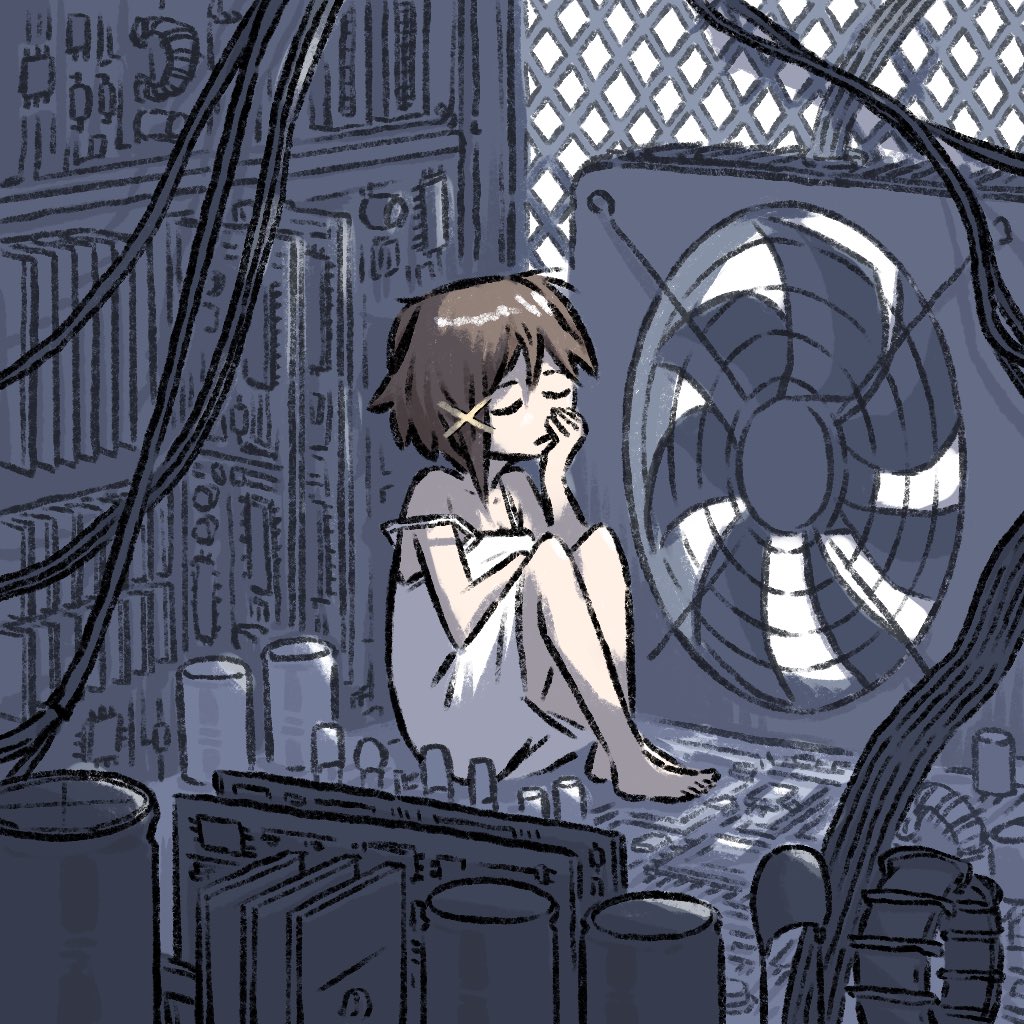Hey, I want to dip my feet into self-hosting, but i find the hardware side of things very daunting. I want to self host a Minecraft server (shocking, i know), and i’ve actually done this before both on my own PC and through server hosts. I’d like to run a Plex server as well (Jellyfin is champ now it sounds like? So maybe that instead), but I imagine the Minecraft server is going to be the much more intensive side of things, so if it can handle that, plex/jellyfin will be no issue.
The issue is, I can’t seem to find good resources on the hardware side of building a server. I’m finding it very difficult to “map out” what I need, I don’t want to skimp out and end up with something much less powerful than what I need, but i also don’t want to spend thousands of dollars on something extremely overkill. I looked through the sidebar, but it seems to mostly cover the software side of things. Are there any good resources on this?
Modded minecraft servers are heavily dependent on single threaded performance. For more vanilla servers paper helps a lot. For forge I highly recommend trying mohist. It isn’t compatible with all forge mods but it works well enough that you can just replace the server jar in many modpacks and see a large performance boost.
The biggest thing that slows down mc servers in my experience is world gen. Pre generating the world and adding a world border can help a lot.
I’ve not done a larger scale fabric server so I can’t offer much advice in optimizing it but the client speed ups available through fabric look very impressive.
If you are running a server without world borders or with a lot of simultaneous players I’d look in depth on what ssd you’re saving the world to. You want dram cache, random write speeds are way more important than sequential. If you can find an Intel optane for cheap they are pretty amazing. The ssd is less important than your cpu and having enough ram to run the server.
Generally an older gaming pc is better than an older server. Again you are targeting single threaded performance. If you are purchasing hardware it might make more sense to go with lower end new hardware than higher end old hardware. It’s all about trade offs for your use case and budget. For a long time I just used my main pc to play games and host servers (ram is cheaper than another pc) but I tinker too much to keep good ‘server’ uptime.
Transcoding can get pretty taxing on a system but any semi modern quad core can handle a few 1080p streams or a 4k stream. Plus you can use a gpu for transcoding. The nice thing is it scales with core count pretty well so older server or workstation hardware works well.
The only thing I’d add to this is that the people who make Paper Minecraft are working on Folia, a multi threaded server. It’s probably worth looking into if you’re starting from scratch :)
Not terribly useful for anything less than a lot of players
Fabric has some amazing open source projects dedicated to performance.
Idk if any multithread it yet but its my current go to for low end systems
I don’t have any better hardware suggestions than you’ve already been given, but I would recommend avoiding Plex.
I get problems with it pretty much every day. Usually it’s the client stuttering and crashing, but I often get the client connecting to the server, but not getting a list of media back.
I’ve bought a lifetime licence, but I’m looking into switching to Jellyfin because it’s so frustrating.
I’ve gone with Unraid and consumer level hardware (intel i3 12100 and 16gb of standard ddr4 ram) the only “server hardware” I have, is an LSI HBA card that’s in IT mode so I can connect more HDDs.
I’m even used SMR drives in my array, just use a good CMR drive for parity and the biggest SSD you can get for your cache drive and you will be good to go.
Acronyms, initialisms, abbreviations, contractions, and other phrases which expand to something larger, that I’ve seen in this thread:
Fewer Letters More Letters LTS Long Term Support software version LXC Linux Containers NAS Network-Attached Storage NVMe Non-Volatile Memory Express interface for mass storage PCIe Peripheral Component Interconnect Express PSU Power Supply Unit Plex Brand of media server package RAID Redundant Array of Independent Disks for mass storage SATA Serial AT Attachment interface for mass storage SBC Single-Board Computer SSD Solid State Drive mass storage
[Thread #225 for this sub, first seen 19th Oct 2023, 16:05] [FAQ] [Full list] [Contact] [Source code]
I just use my old gaming PC, GPU and all. I self host quite a few services on it and I have yet to find something that puts it into high usage.
As someone who is also looking at building a server for different things then you( mainly nextcloud and a few other self hosted services). if you don’t need more then 2tb of storage look into a used HP mini office PC.
-
They are cheap at less then £200 for an older model or even sub £100
-
They are a lot more powerful then an SBC like a raspberry pi but without being an electricity consumption monster like a lot of servers
-
Some have a 60W PSU so they are dirt cheap to run
-
Newer ones have a 2.5 SATA slot and a M.2 slot( including the 60W model I’m looking at getting used). So you can have dual drives for a fast main drive and a backup drive or RAID depending on how you set it up
-
They are small and don’t take up much room in your house like a raspberry pi
-
If you need more space and it doesn’t have to be super fast you could get a USB NAS for it
So overall they are a really good option if you want something small and you don’t have a ton of money for hardware or electricity but a raspberry pi doesn’t fulfil your performance needs.
-
Honestly for what you’re trying to accomplish, any PC built in the past 10 years would suffice.
I’d say the bigger issue would be what server operating system you’d want to run. Personally I use UnRaid and I love it, all of the apps you mention and more are available as premade docker templates in the Community Apps plugin. I’ve tried Windows and FreeNas before but I find UnRaid just so user friendly and reliable.
I used to run a Minecraft server with PaperMC on an RPi4, and I would only give the java environment 2G of RAM. It never crashed except when I overloaded it with plugins. The same Pi was also hosting Pihole and Ubiquiti UNMS. As long as you aren’t planning on hosting hundreds of players at the same time, you should be fine with whatever (and assuming you’re doing this at home on residential internet, your network would be the bottleneck anyway). I do recommend PaperMC, it improves the performance and stability of Minecraft and it’s a fork of Spigot so it’s compatible with most plugins.
Also /u/ShellMonkey is correct about used server hardware. You can pick up a Dell PowerEdge for about $200.
Media servers can be pretty demanding particularly when doing on the fly transcoding. Look for refurbished servers, big companies routinely toss perfectly good hardware as part of product lifecycle management. A favorite of mine is called ‘techmikeny’ although their site and search is pretty janky.
I/O performance needs to be considered along with the number of processing threads which really comes into play if you have a lot of virtual machines/containers running. Less than $1000 upfront and you can get well more than you think you need, and have space to improve. I’d say focus on CPU first, it’s easy to add memory and storage later if you buy a big enough box to have extra slots open, but adding CPUs is more of a pain.
Electricity and noise should be a thought too. My largest box is using about 240 watts right now and if you go with actual rack servers they tend to be loud with a half dozen fans running at 6000 rpm or so. If you can stash it somewhere out of your living space all the better.
deleted by creator
I started on a raspberry pi and would highly recommend. Great for tons of things to self host.
It’ll run Plex no problem, just forget transcoding.
Hosting a minecraft server on a Pi is ambitious.
I tried it. Not great.
Don’t get server hardware, use regular desktop/laptop machines as they’ll be more than enough for you. Server hardware is way more expensive and won’t be of any advantage. If you’re looking to buy you can even get very good 9-10th gen Intel CPUs and motherboards that are perfect to run servers (very high performance) but that people don’t want because they aren’t good to play the latest games. This hardware is also way more power efficient and sometimes even more powerful than any server hardware that you might get for the same price. Get this hardware for cheap and enjoy.
I’ve got enterprise level hardware, rack moubtable all that jazz.
Between the cost of power, and the heat it generates (which uses more AC and thus power) its not feasible to run it.
I’m looking into clustering some raspberry pis for a more power (and heat) efficient hardware as my next project. Barely scratched the surface of research though.
So hey, if anyone has any tips or links, it would be much appreciated.
Just out today, but probably overpriced: https://www.cnx-software.com/2023/10/20/mixtile-cluster-box-supports-four-rockchip-rk3588-sbcs-connected-over-pcie/
Why not get a few HP / Dell mini computers and cluster them? Small, nice and power efficient (because there are models with “mobile” CPUs).
Cost and a personal bias, also I’ve seen more helpful communities amongst Linux and FOSS advocates than trying to deal with a big brand.
I’ve done a lot of IT stuff in my life, even before working in IT.
I’ve seen too many issues from big brands, and its usually caused by the company.
I have a Pi 2 from way back. I’ve thrown so many distros at that thing over time, and without fail I don’t run into any problems I didn’t personally create while learning or through human error.
I understand all too well that those big brands have support for businesses, warranties, etc. It makes them cost effective long term for business. At a personal level I just don’t see the benefits outweighing the negatives.
Again, personal bias. Same core reason I avoid apple products, bias, though I mainly dislike apples cost combined with their closed off, well, everything.
Yes but ARM is great but compared to server hardware it is shit when it comes to performance and reliability. If you come from server hardware and you really max it out you’re going to have a poor experience.
Also I personally like to avoid the Raspberry Pi and their stuff as much as possible. They’ve done good things for the community however they’ve some predatory tactics and shenanigans that aren’t cool. Here a few examples of what people usually fail to see:
- Requires a special tool to flash. In the past it was all about getting a image and using etcher, dd or wtv to flash it into a card, now they’re pushing people to use Raspberry Pi Imager. Without it you won’t be able to easily disable telemetry and/or login via network out of the box;
- Includes telemetry;
- No alternative open Debian based OS such as Armbian (only the Ubuntu variant);
- Raspberry Pi 5 finally has PCI. But instead of doing what was right they decided to include some proprietary bullshit connector that requires yet another board made by them. For those who are unware other SBC manufacturers simply include a standard PCI slot OR a standard NVME M2 slot. Both great option as hardware for them is common and cheap;
- It is overpriced and behind times.
For what’s worth the NanoPi M4 released in 2018 with a RK3399 already had a PCI interface, 4GB of RAM and whatnot and was cheaper than the Raspberry Pi 3 Model B+ from the same year that had Ethernet shared with the USB bus.
If you don’t want those big brands (I only suggested them because they’re cheap second hand) build something yourself on consumer hardware or pick a Chinese brand.
Those big brands are cheap though, for 100€ you can get an HP Mini with an i5 8th gen + 16GB of ram + 256GB NVME that obviously has a case, a LOT of I/O, PCI (m2) comes with a power adapter and more importantly it outperforms a RPi5 in all possible ways. Note that the RPi5 8GB of ram will cost you 80€ + case + power adapter + bullshit pci adapter + sd card + whatever else money grab.
Side not on alternative brands, HP mini units are reliable the BIOS is good and things work. Now the trendy MINISFORUM is cool however their BIOS come out of the factory with wired bugs and the hardware isn’t as reliable - missing ESD protection on USB in some models and whatnot.
Removed by mod
Same for me









